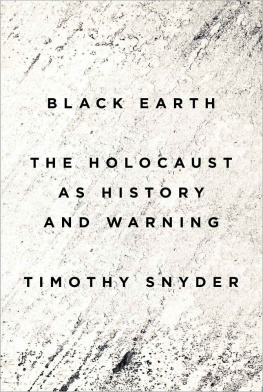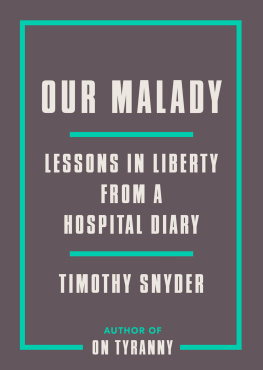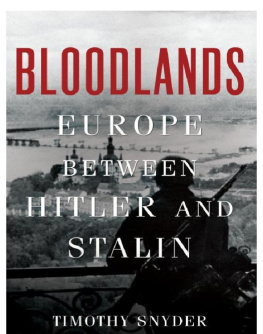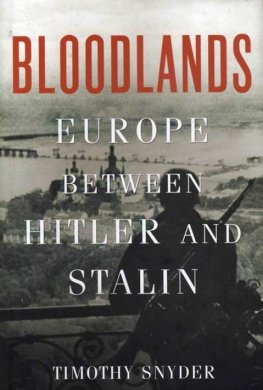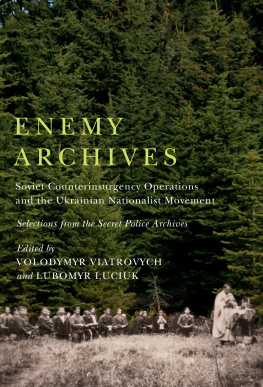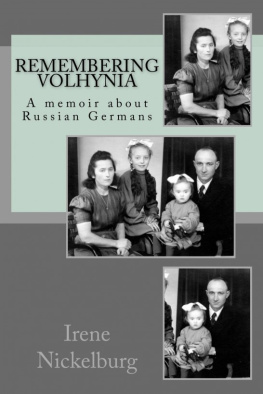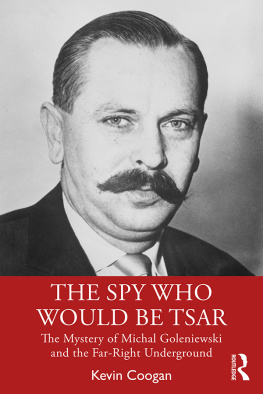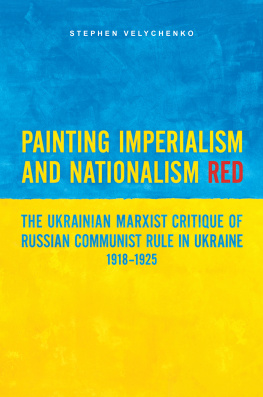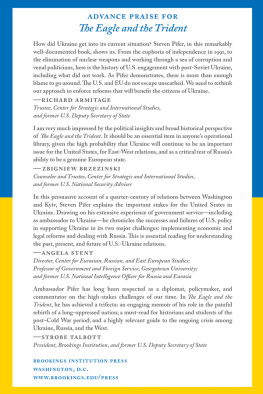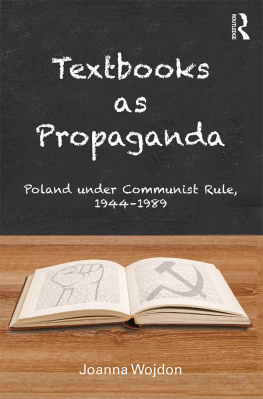Sketches from a Secret War
Sketches from a Secret War
A Polish Artists Mission to Liberate Soviet Ukraine
Timothy Snyder
Yale University Press
New Haven and London
Published with the assistance of the Frederick W. Hilles Publication Fund of Yale University.
Published with assistance from the Mary Cady Tew Memorial Fund.
Copyright 2005 by Timothy Snyder. All rights reserved. This book may not be reproduced, in whole or in part, including illustrations, in any form (beyond that copying permitted by Sections 107 and 108 of the U.S. Copyright Law and except by reviewers for the public press), without written permission from the publishers.
Printed in the United States of America by Sheridan Books.
The Library of Congress has cataloged the hardcover edition as follows:
Snyder, Timothy.
Sketches from a secret war : a Polish artists mission to liberate Soviet Ukraine / Timothy Snyder.
p. cm.
Includes bibliographical references and index.
ISBN 0-300-10670-X (cloth : alk. paper)
1. UkraineHistory20th century. 2. Ukraine, WesternHistory Autonomy and independence movements. 3. Anti-communist movements Ukraine, WesternHistory. 4. UkraineEthnic relations. 5. Ukraine RelationsPoland. 6. PolandRelationsUkraine. 7. Jzewski, Jan Henryk, 18921981. I. Title: Polish artists mission to liberate Soviet Ukraine.
II. Title.
DK508.812S625 2005
947.7084-dc22
2005044034
ISBN 978-0-300-12599-3 (pbk. : alk. paper)
A catalogue record for this book is available from the British Library.
The paper in this book meets the guidelines for permanence and durability of the Committee on Production Guidelines for Book Longevity of the Council on Library Resources.
10 9 8 7 6 5 4 3 2 1
Mirze gwoli rde
Contents
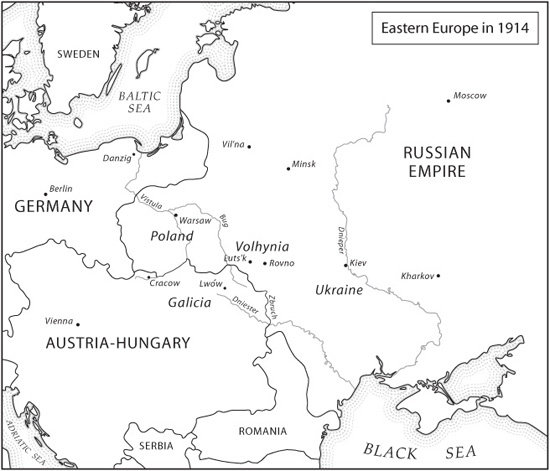
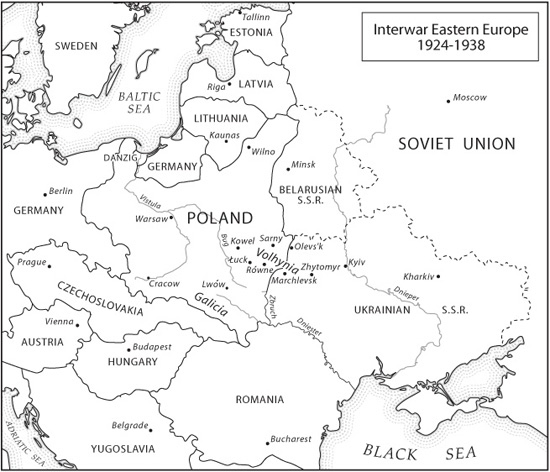

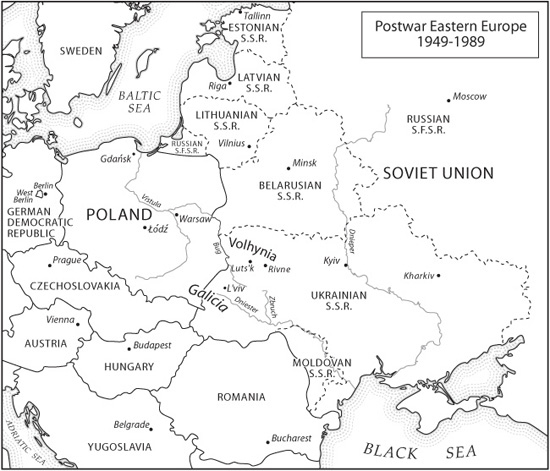
Prologue: Interrogations
The Polish painter composed himself in his cell. It was September 1953, and thus far Henryk Jzewski was pleased with his performance in communist prison. After thirteen years underground, resisting Hitlers and Stalins occupations of his country, Jzewski had been arrested by the security forces of communist Poland that March. At first, his interrogators seemed rather disoriented. Jzewski was arrested only two days before the death of Iosif Stalin, and after a few disorderly weeks his interrogators had retired. Jzewski, who had expected a quick death from the communists, instead enjoyed a summer of delays. He read philosophy books, and had long discussions with a loquacious cellmate. By September, however, the communists had learned something important about the painters political life, about his career in independent Poland before 1939. Jzewski had been a leading anticommunist. His interrogator produced documents: the painter had been sent to the eastern province of Volhynia in 1928 to stop the spread of communism from the Soviet Union to Poland. Soon thereafter, the interrogator was able to prove that Jzewski, in 1919 and 1920, had directed intelligence operations for a Polish paramilitary organization in Ukraine in the aftermath of the Bolshevik Revolution. Since communist criminal law was retroactive, all of this was a crime.
The Polish-Bolshevik War of 19191920, when Warsaw and Moscow fought for the borderlands of the defunct Russian Empire, was the first great international conflict between communism and anti-communism. Jzewski, a Pole
OBLIVION
Volhynia was a borderland, Ukrainian in its majority, Jewish in the towns and cities, ruled by Poland. Poland in September 1939, Jzewski wrote in his illegal newspapers about the Soviet deportation of Polish elites in 19391941, the Jewish Holocaust in 19411942, the ethnic cleansing of Poles by Ukrainian nationalists in 1943, the Soviet deportations of Poles and Ukrainians in 19441946, and the ethnic cleansing of Ukrainians by Polands communist regime in 1947.
The Volhynia Experiment has been
The political extremists who wished to kill Jzewski when he mattered created a history in which he did not. Communism and nationalism, the ideological currents Jzewski opposed, took their revenge on the man thereafter. No extremist group managed to kill Jzewski during the years of his political activity, but the far Left and the far Right conspired in a retrospective annihilation of his policies. Soviet historians justified the Soviet annexation of Volhynia by portraying interwar Polish policy as the exploitation of the honest Ukrainian peasant. Much Ukrainian historiography has followed this line, and few Ukrainian national historians have shown much patience for Polish compromisers such as Jzewski. Polish nationalists, for their part, resisted Jzewskis policy of national concessions from its inception. In interwar Poland, Jzewski was despised by Poles of the Right. Communists, of course, controlled his country after 1945; they hunted Jzewski for years, and arrested him in March 1953.
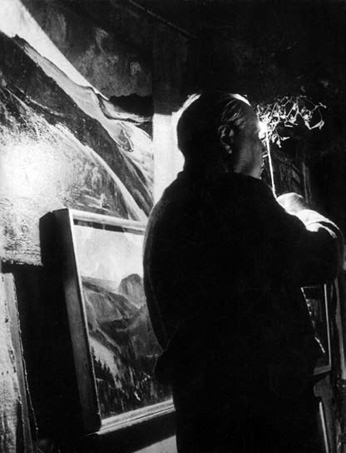
Figure 1. Zbigniew Chomicz, Portrait of Henryk Jzewski with Paintings.
SOURCES
By September 1953, four scripts of Jzewskis prison performance had emerged. Jzewski had begun to compose his memoirs during his interrogation, seeking in what he called his Composition of Existence or his Tale of Existence a sense of the shape of his life. The interrogation protocols, a second script, reveal a communist state security apparatus that had time and resources on its side. Attached to several of the daily interrogation protocols, which Jzewski had to sign, are the pertinent secret documents, raided by the communists from Polands prewar archives, which describe his struggle with communism. A third script was a collective performance. Before Jzewski was sentenced, he had to listen to a chorus of interwar intelligence officers who, out of fear or desire for shorter sentences themselves, revealed a few details about their shared endeavor of earlier years. A fourth and final script was written by Jzewskis talkative cell mate, an informer who wrote regular reports of their conversations.
Jzewskis memoirs saw the light of day only after his death. Copies of the interrogation protocols and trial materials, as well as the documentation of the long manhunt for Jzewski (alias The Professor, The Lawyer, Uncle, Olgierd, Niemyrycz, Mazurkiewicz, wicki, Jan Piotrowski, Jan Florewski, Jan Florkowski, Jacek Florkowski, Jan Jankowski, and Przemyslaw Pawlowicz), are now available in Polands Institute of National Remembrance. Some interrogation materials are presently in a Warsaw criminal court, where proceedings are under way to clear his name. These four scripts of Jzewskis lifethe memoirs, the interrogations, the testimony, the denunciationsinvite the investigation of other sources pertaining to his policies: the records of his administration in Volhynia; the files of interwar Polands Ministries of Foreign Affairs, Internal Affairs, and Religion; the memoirs of Jews, Poles, and Ukrainians; Communist Party documents on the struggle to master Ukraine; the files of the intelligence organization that employed Jzewski while he was underground in Stalinist Poland. These additional sources bring the outline of Jzewskis grand design into focus. His interrogators were quite right that Jzewski aimed to eliminate communism in eastern Poland. They failed to understand, however, that his policy was part of a strategy to destroy international communism by hastening the disintegration of the Soviet Union. In this endeavor, Jzewski was perhaps the most zealous Polish participant. His own commitment to the destruction of the Soviet Union, and his own faith that communism would be defeated, survived Stalinism, occupation, and the victory of communism in Poland.
Next page

